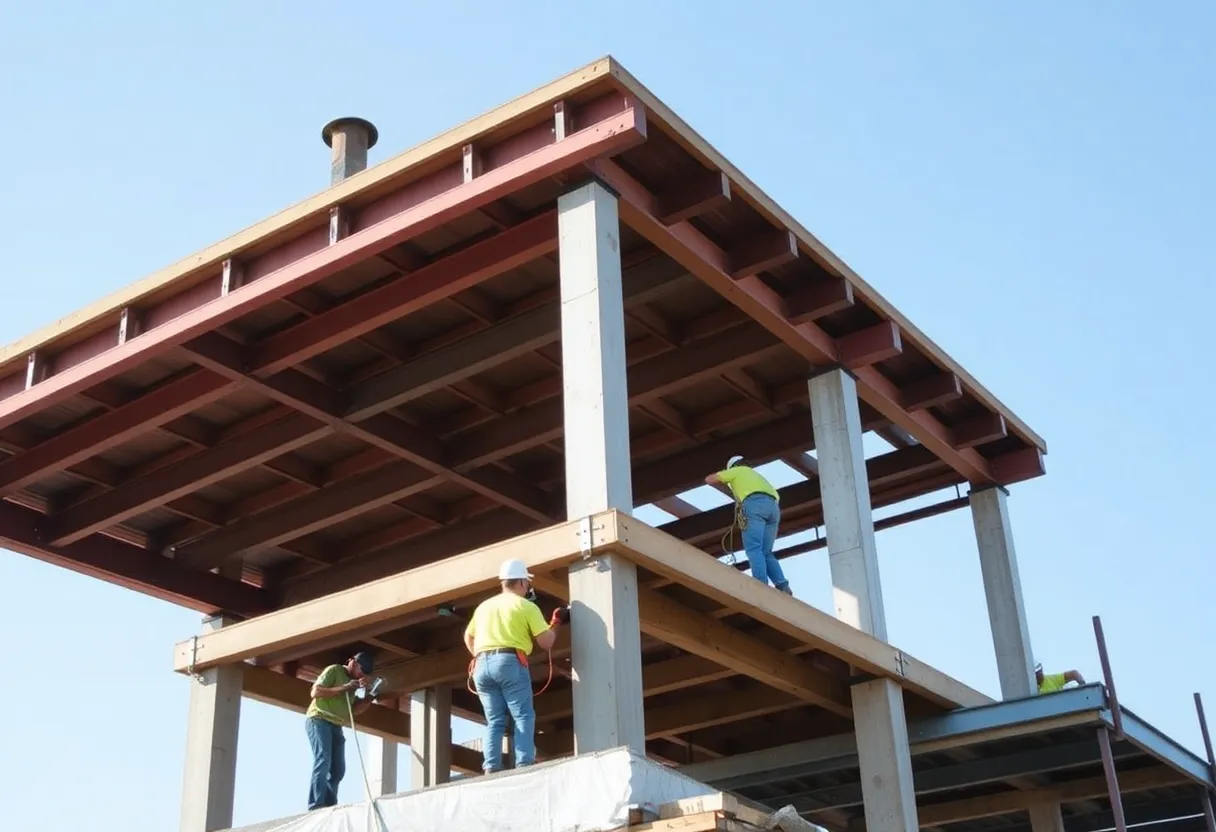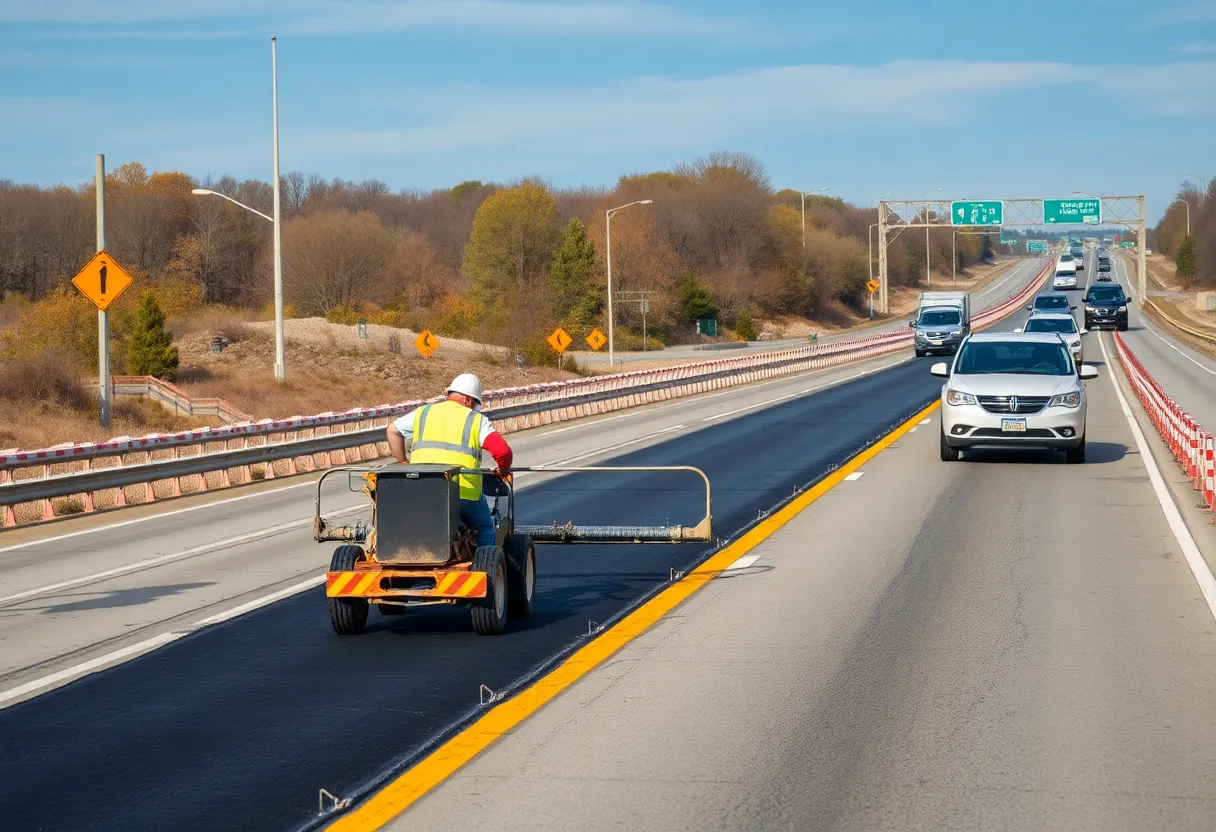News Summary
The Kentucky legislature is debating a bill that would require the use of American-sourced metals in state construction projects from November 2025. Supporters argue this could lead to $500 million in contracts for local suppliers and stimulate job growth, particularly in Appalachia. Critics, however, express concerns over increased costs and reduced bidding flexibility. Transparency in procurement practices is highlighted as a significant advantage of the bill, which aims to bolster the state’s economy and domestic manufacturing.
Frankfort, Kentucky: Legislature Debates Bill for American-Sourced Metals in State Projects
In a significant development, Kentucky’s legislature has been debating a bill that would mandate the use of American-sourced metals in state construction projects, set to take effect in November 2025. The measure aims to prioritize domestic suppliers, potentially reshaping state procurement practices and boosting local economies.
The most critical aspect of this bill is its potential economic impact. Supporters highlight that it could channel $500 million in construction contracts toward domestic suppliers, fostering job growth particularly in the Appalachia region. This initiative is expected to strengthen local industries by encouraging contractors to adapt their supply chains, although initial implementation may lead to higher costs.
Key details emerging from the debate include the emphasis on transparency in procurement processes, as noted by state officials. Pilot projects have already demonstrated promising results, suggesting that the policy could serve as a model for similar efforts elsewhere. However, opposition from some quarters argues that the mandate might reduce flexibility for cost-effective bidding, potentially complicating project timelines.
Further supporting information reveals that analysts foresee a surge in demand for U.S. manufacturing, which could indirectly influence broader national standards. The bill’s focus on domestic sourcing aligns with efforts to enhance economic resilience within Kentucky, addressing longstanding challenges in the construction sector.
Economic Benefits and Challenges
The proposed legislation could inject substantial economic benefits into Kentucky’s construction industry. By favoring American-sourced metals, the state aims to secure $500 million in contracts for local suppliers, directly supporting job creation in Appalachia. This region, known for its resource-based economy, stands to gain from increased employment opportunities as manufacturers ramp up production.
Contractors are already beginning to adapt their supply chains to comply with the new requirements. While this shift may initially raise costs due to potential shortages or premium pricing for domestic materials, proponents believe these adjustments will lead to long-term stability. State officials have pointed to improved transparency in procurement as a key advantage, ensuring that taxpayer funds are directed toward verified American sources.
On the other hand, critics of the bill express concerns over its rigidity. They argue that mandating American-sourced metals could limit access to more affordable international options, potentially driving up overall project expenses. Despite these reservations, early trials in pilot projects have shown positive outcomes, indicating that the policy might balance economic goals with practical feasibility.
Background and Potential Influence
This debate stems from ongoing efforts to prioritize domestic production amid broader economic challenges. Kentucky’s legislature is considering the bill as part of a strategy to bolster local industries, especially in construction and manufacturing. The measure reflects a growing trend in state-level policies aimed at protecting American jobs and reducing reliance on foreign materials.
Historically, construction projects in Kentucky have involved a mix of domestic and international suppliers, but recent economic pressures have highlighted the need for change. The bill, if passed, would take effect in November 2025, allowing time for stakeholders to prepare. Analysts suggest that successful implementation could set a precedent, potentially influencing similar policies at the national level, though the focus remains state-specific.
In the context of the U.S. construction sector, this development aligns with wider discussions on supply chain resilience. Recent trends, such as advancements in payroll platforms and cloud tools, have been reshaping management practices nationwide, but Kentucky’s bill adds a layer of specificity by targeting material sourcing. This could encourage a ripple effect, prompting other states to evaluate their own procurement strategies for similar benefits.
Overall, the bill represents a proactive step toward economic empowerment, with potential to enhance job growth and manufacturing demand in Kentucky. As debates continue, stakeholders are closely monitoring how these changes might unfold in the coming years.
This article draws from recent discussions in Kentucky’s legislative sessions and aligns with broader U.S. construction news trends, such as those related to infrastructure and supply chain adaptations.
FAQ Section
- What is the main focus of the bill debated in Kentucky’s legislature?
The bill aims to mandate American-sourced metals in state construction projects, effective from November 2025. - What economic benefits are cited by supporters?
Supporters cite economic benefits, with $500 million in construction contracts favoring domestic suppliers and promoting job growth in Appalachia. - How are contractors responding to the bill?
Contractors adapt supply chains, though initial costs may rise. - What do opponents say about the bill?
Opposition argues flexibility for cost-effective bids. - What have trials shown?
Trials in pilot projects show promise. - Could this policy affect broader standards?
This policy could influence national standards. - What do analysts predict?
Analysts predict a surge in U.S. manufacturing demand.
Key Features Chart
| Feature | Description |
|---|---|
| Effective Date | November 2025 |
| Economic Impact | $500 million in contracts favoring domestic suppliers |
| Job Growth | Promotes job growth in Appalachia |
| Supply Chain Changes | Contractors adapt supply chains, with possible initial cost rises |
| Transparency | Improves transparency in procurement |
| Opposition Concerns | Arguments for flexibility in cost-effective bids |
| Pilot Results | Trials in pilot projects show promise |
| Potential Influence | Could influence national standards |
| Analyst Prediction | Surge in U.S. manufacturing demand |
Deeper Dive: News & Info About This Topic
Construction FL Resources
Author: Construction FL News
The FLORIDA STAFF WRITER represents the experienced team at constructionflnews.com, your go-to source for actionable local news and information in Florida and beyond. Specializing in "news you can use," we cover essential topics like product reviews for personal and business needs, local business directories, politics, real estate trends, neighborhood insights, and state news affecting the area—with deep expertise drawn from years of dedicated reporting and strong community input, including local press releases and business updates. We deliver top reporting on high-value events such as the Florida Build Expo, major infrastructure projects, and advancements in construction technology showcases. Our coverage extends to key organizations like the Associated Builders and Contractors of Florida and the Florida Home Builders Association, plus leading businesses in construction and legal services that power the local economy such as CMiC Global and Shutts & Bowen LLP. As part of the broader network, including constructioncanews.com, constructionnynews.com, and constructiontxnews.com, we provide comprehensive, credible insights into the dynamic construction landscape across multiple states.





